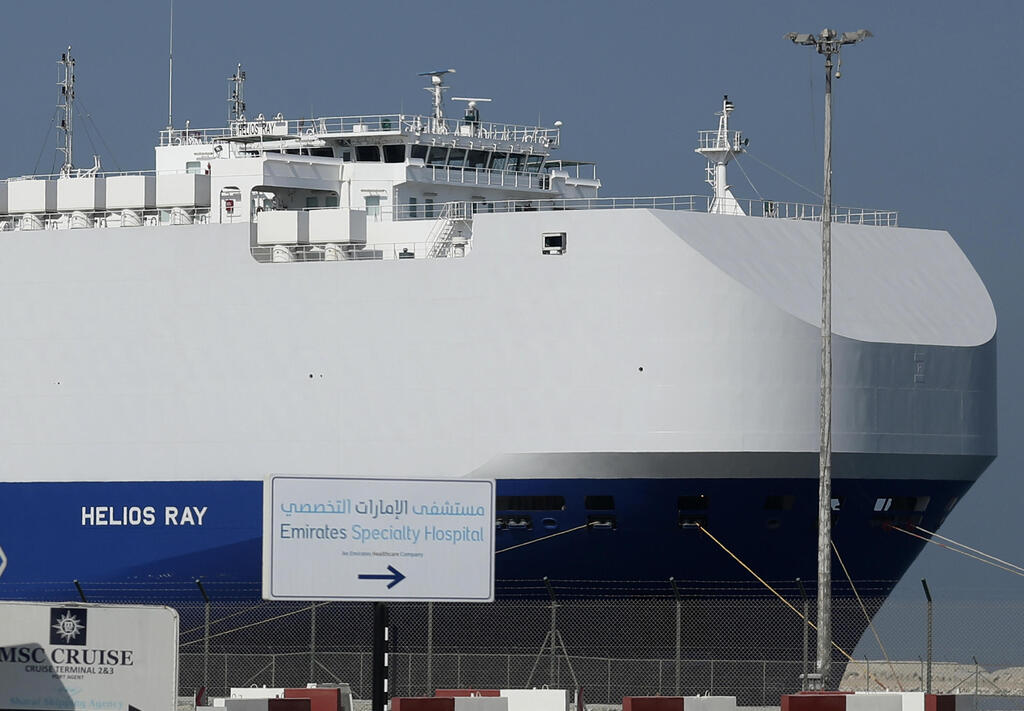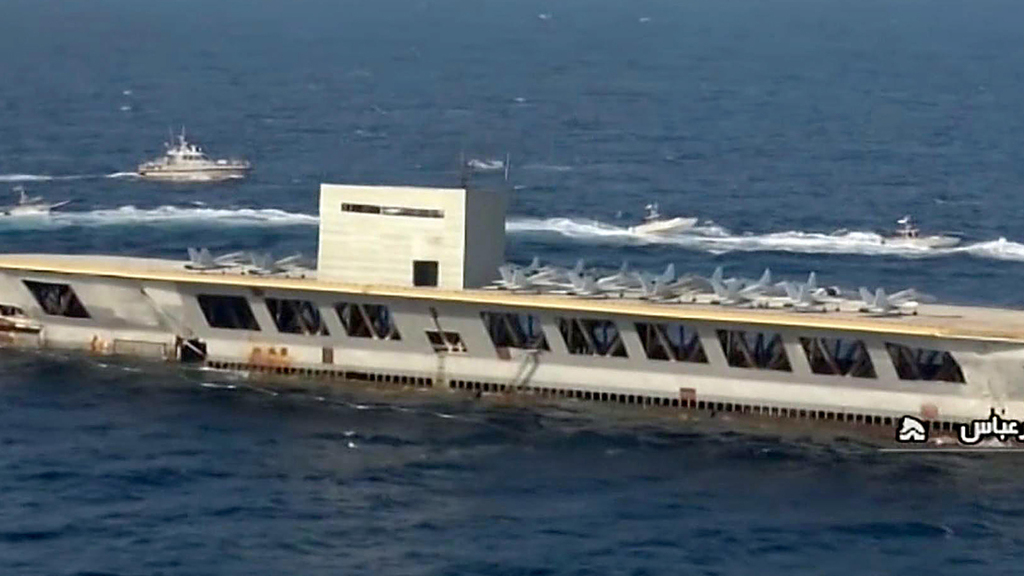Getting your Trinity Audio player ready...
Iran has identified Israel's vulnerability in its maritime transportation of goods in the Persian Gulf, sending a message that Israeli vessels will be defenseless when traveling in that international body of water.
The MV Helios Ray, an Israeli-owned cargo ship was hit by a missile late last week causing two gaping holes in its hull above water level.
3 View gallery


Israeli-owned cargo ship Helios Ray sits docked in port in Dubai, Feb. 28, 2021
(Photo: AP)
Had the blasts been caused by a torpedo, mines or an explosion on board, the damage to the vessel would have been very different.
It appears, therefore, that the ship was not the victim of some random act or of mistaken identity. Instead it seems clear that it was specifically targeted in an attack meant to cause damage but not to actually sink the vessel.
Whoever dispatched a missile at the cargo ship could have launched multiple missiles that would have caused far greater damage. But that would have been considered an act of war by the United States and all other nations responsible for safe travel in the Gulf waters.
The Helios Ray sails under the Bahaman flag, is not registered in Israel and is not manned by an Israeli crew.
Unlike Israeli vessels flying the Israeli flag, the cargo ship was not protected by the country's security services.
Iran's efforts to hit vulnerable Israeli targets on the high seas are not new and have intensified since the assassination of the Islamic Republic's chief nuclear scientist Mohsen Fakhrizadeh last November.
3 View gallery


The scene of assassination of Iran's chief nuclear scientist Mohsen Fakhrizadeh, Nov. 2020
(Photo: Reuters)
According to a report in the Israeli media two months ago, an Iranian stowaway was captured on a Haifa-based Zim ocean liner sailing from Izmir in Turkey to Greece and then on to Italy.
The man, who was delivered to Italian law enforcement authorities, claimed to be a refugee fleeing his country but the manner in which he boarded the vessel in Turkey and the personal equipment he had in his possession raised suspicions that he was not being truthful.
Since that incident, Israeli ships have increased their security.
The vessel that targeted last week belongs to a company owned by Israeli businessman Rami Unger. This fact is displayed on maritime websites along with other details about the ship, which always uses the same route when it makes its way to the Far East.
The boat left the southern Israeli port of Eilat in early February, carrying cargo for Saudi Arabia and Dubai, and was likely under surveillance since then.
It was attacked as it entered the Gulf of Oman, an advantageous location for Iran's navy, to convey a message to Jerusalem that Israeli interests in the area could be compromised.
3 View gallery


The Iranian Revolutionary Guard Corps carrying out a naval exercise in the Persian Gulf, July 2020
(Photo: AFP)
Since the Sept. 2020 signing of the Abraham Accords to normalize Israel's relations with the UAE and Bahrain, there has been a substantial increase in maritime traffic in the Gulf.
Targeting Israeli vessels in the area will raise insurance costs, rendering travel there untenable, and harm Israel's budding economic ties with Gulf nations.
Without any response to the incident, Iran will continue to target Israeli ships.
As such, Israel must exact a price for the attack and any others like it.

